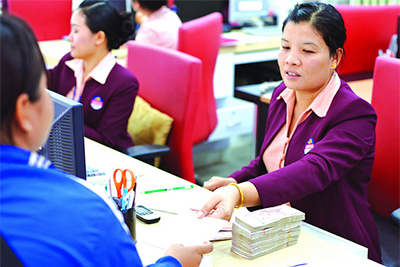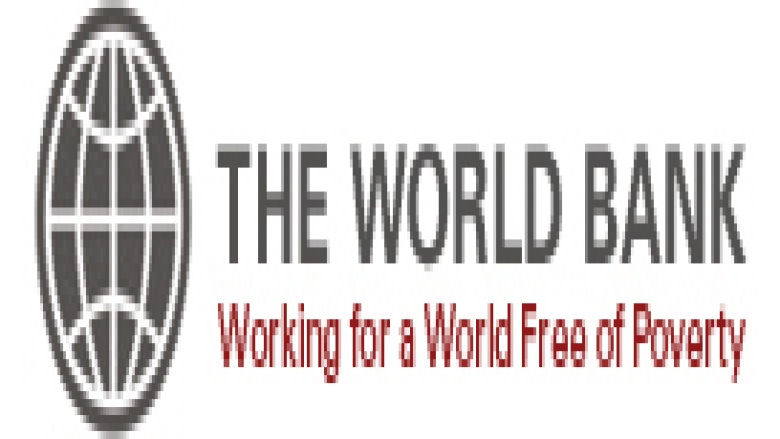

November 11, 2013
STORY HIGHLIGHTS
Mobile banking and other technological innovations make it easier to expand financial services to the poor, women and other underserved groups
Financial inclusion should not mean finance for all at all costs
New report is the most comprehensive study yet on financial inclusion
Low-income populations benefit the most from technological innovations such as mobile payments, mobile banking, and borrower identification based on fingerprinting and iris scans, according to a new World Bank Group report.
That’s because those innovations make financial services cheaper and easier to access for the poor, women, and rural residents, especially those living in remote, less populated regions without brick-and-mortar bank branches, according to the report, Global Financial Development Report 2014: Financial Inclusion.
“Financial services are out of many people’s reach because market and government failures pushed the costs of these services to prohibitively high levels,” said World Bank Director of Research Asli Demirguc-Kunt, a co-author of the report. “Vulnerable populations benefit the most when policy and products address the regulatory and other hurdles to financial inclusion.”
The report, the second in a series, is the most comprehensive study yet on financial inclusion, a topic that has gained worldwide attention. More than 50 countries have committed to explicit targets to increase financial inclusion. And last month, World Bank Group President Jim Yong Kim set targets toward universal financial access for all working-age adults by 2020.
Many countries have made progress in expanding account use among those underserved by traditional financial institutions. Some policies have proven to be especially effective, such as requiring banks to offer low-fee accounts, waiving onerous documentation requirements, and using electronic payments to deposit government assistance into bank accounts. For example, South Africa, with a public-private framework, increased the number of bank accounts by six million in four years.
Technological innovations, which have grown rapidly in the past decade, can speed up the progress. Mobile banking has played a key role in expanding financial inclusion in low-income countries, such as Kenya, the Philippines, and Tanzania. Brazil increased financial access to people living in remote areas by promoting technology-based “correspondent banking” – financial services provided on behalf of banks by retails stores, gas stations, agents on motorcycles, and boats on the Amazon River.
To allow consumers to take full advantage of those innovations, also including e-mobile wallets and other e-money accounts, the report recommends that regulators encourage competition among financial service providers and improve the legal, regulatory and institutional environment. That will also minimize the chance that credit is overextended among people not qualified to receive it.
“Policy makers need to strike a balance between providing incentives for the new technologies and requiring them to be open to competition,” said Martin Cihak, lead author of the report and lead economist in the World Bank’s research department. “Competition policy is a key part of consumer protection, because healthy competition among providers gives more power to consumers.”
Financial services are out of many people’s reach because market and government failures pushed the costs of these services to prohibitively high levels. 
Challenges of reaching the “unbanked”
Considerable evidence has shown that people, especially the poor, benefit from having basic payments, savings and insurance services. But some 2.5 billion people — more than half of the world’s adult population — lack bank accounts. Low-income countries face especially daunting challenges. Thirty percent of the adults there saved in 2011, compared with 58 percent in high-income countries, according to analyses of the World Bank’s Global Findex database included in the report.
Technological innovations also present new challenges, partly because they take root in different fashions across the globe. Russia, for example, has one of the highest rates of mobile phone subscriptions in the world, at 179 phones per 100 people, but it ranks among the lowest in mobile phone use for financial transactions, at fewer than two transactions per 100 adults. By contrast, in Kenya, where one-fifth of the population has cell phones, 68 percent of the adults used a mobile phone in 2011 to pay bills or send or receive money.
The report cautions, however, financial inclusion should not mean finance for all at all costs. For example, creating millions of bank accounts has little impact if they aren’t used regularly. And promoting credit without regard to cost actually exacerbates financial and economic instability.
To promote financial inclusion responsibly, the report urges policy makers to encourage product designs that address market failures, meet consumer needs and overcome behavioral problems. For example, commitment savings accounts, where access to cash is possible only after a period of time or after a goal has been reached, can promote savings. Responsible financial inclusion also requires consumers to better understand finance.
For countries with strong banking bricks and mortar networks, which often view mobile banking as a trend that competes with checking and credit card use, the report recommends that regulators take care to price new products reasonably so that the unbanked can use them as well.
The report includes several datasets, including an updated version of the Global Financial Development Database. The database includes more than 100 financial system characteristics — such as the access, efficiency, and stability of financial markets and institutions — for more than 200 economies.
The report is a part of a broader commitment to provide knowledge and operational support to developing economies. The World Bank Group currently has financial inclusion projects with public and private partners in more than 70 countries.
No comments:
Post a Comment